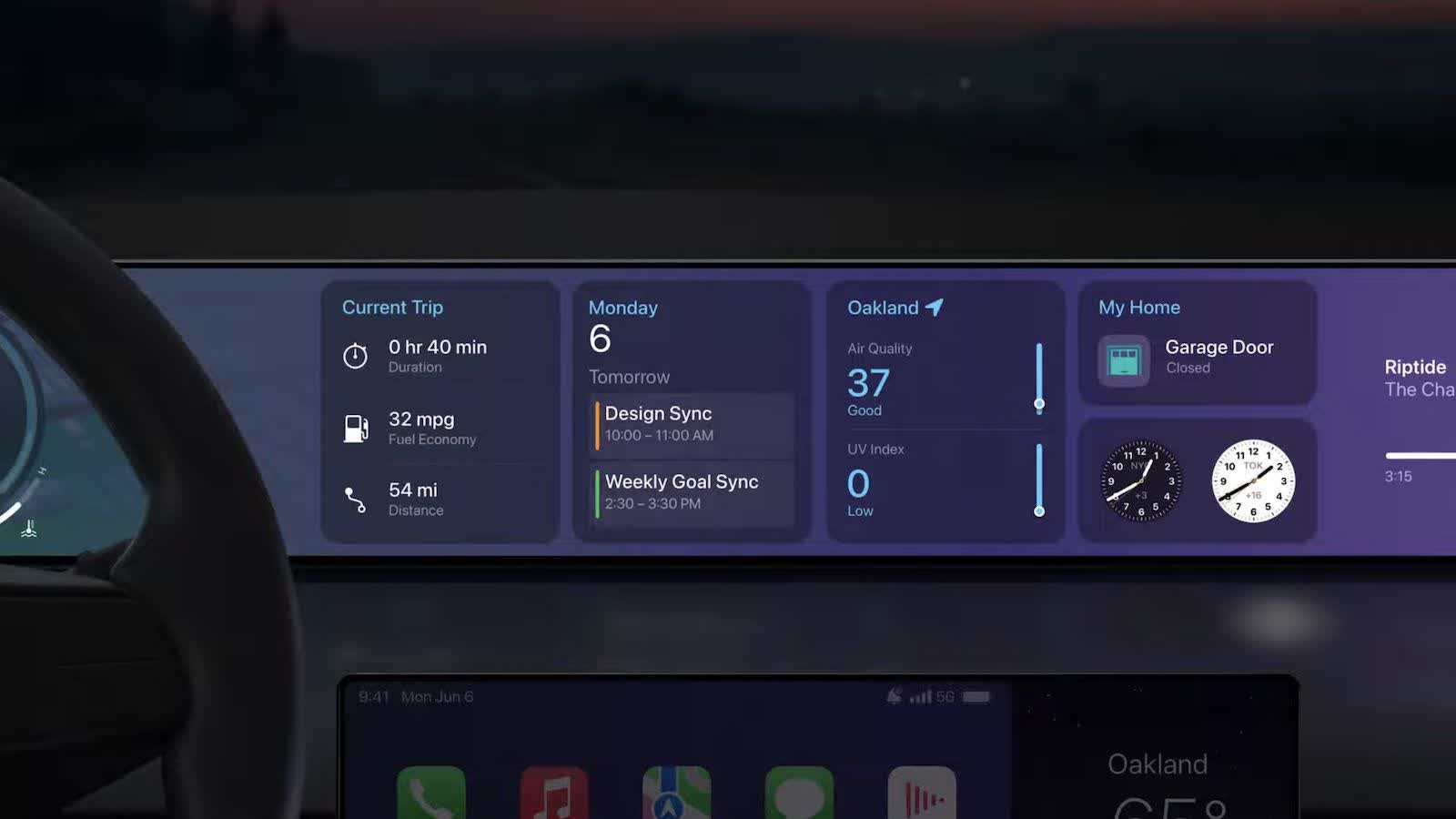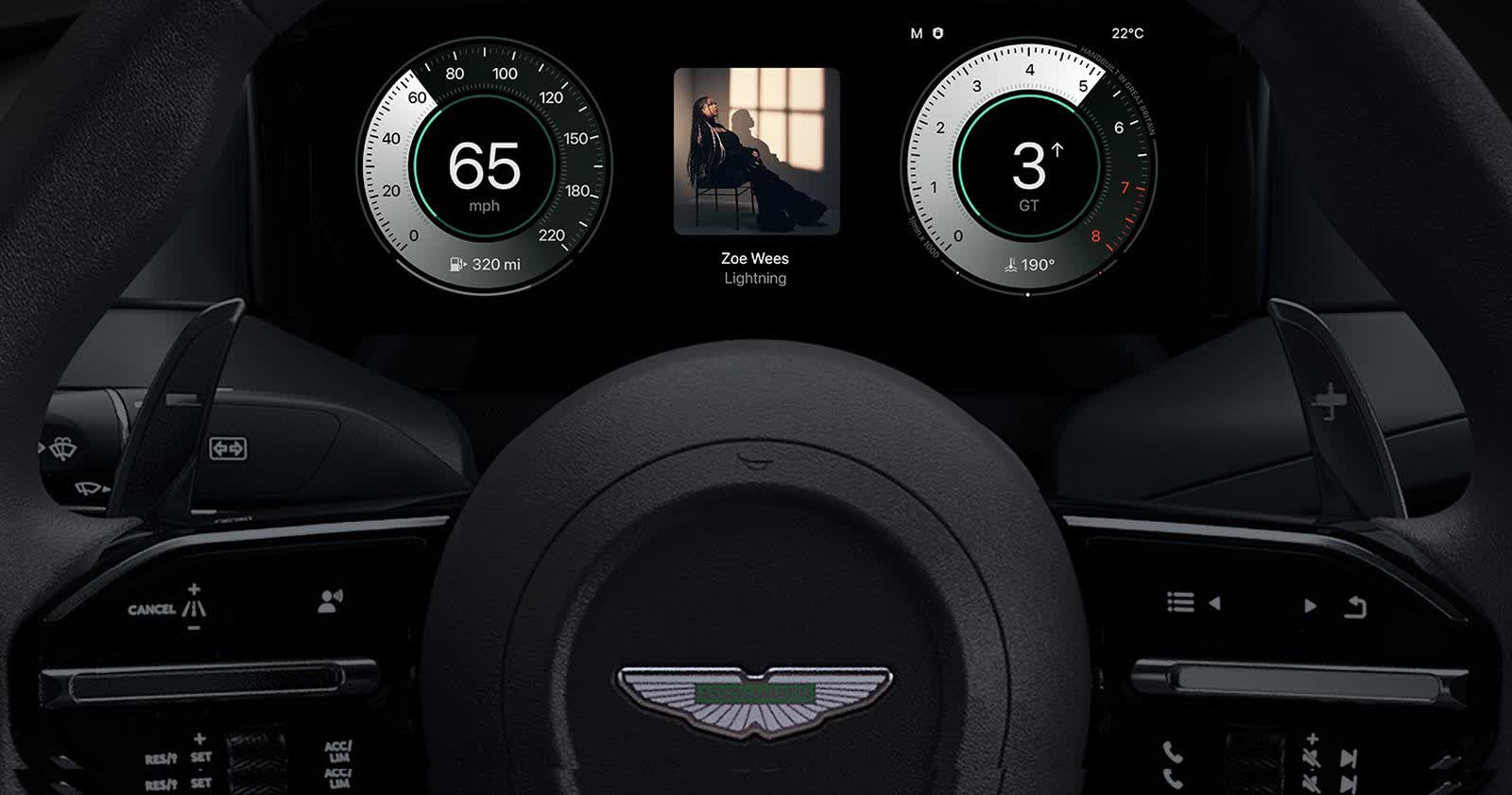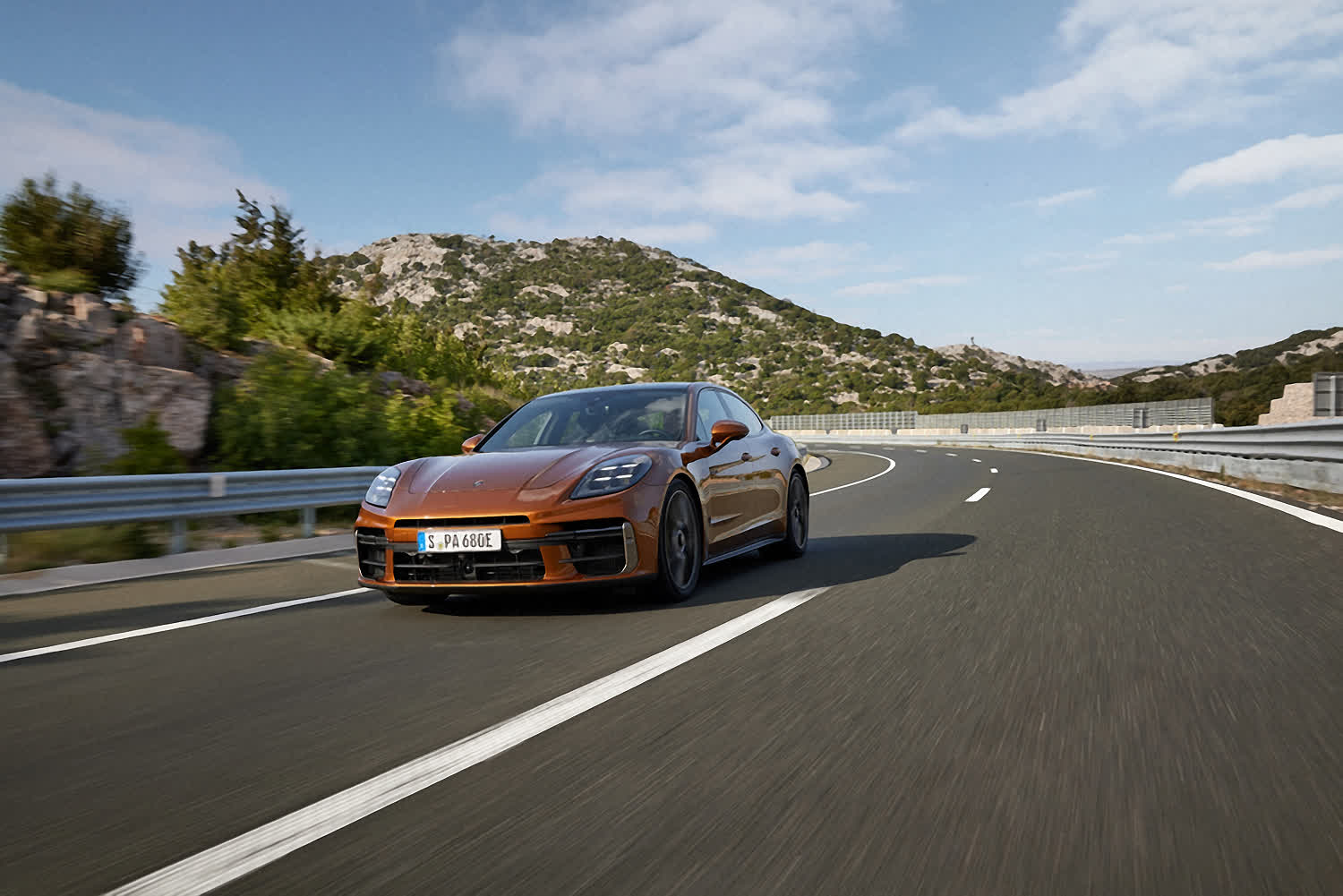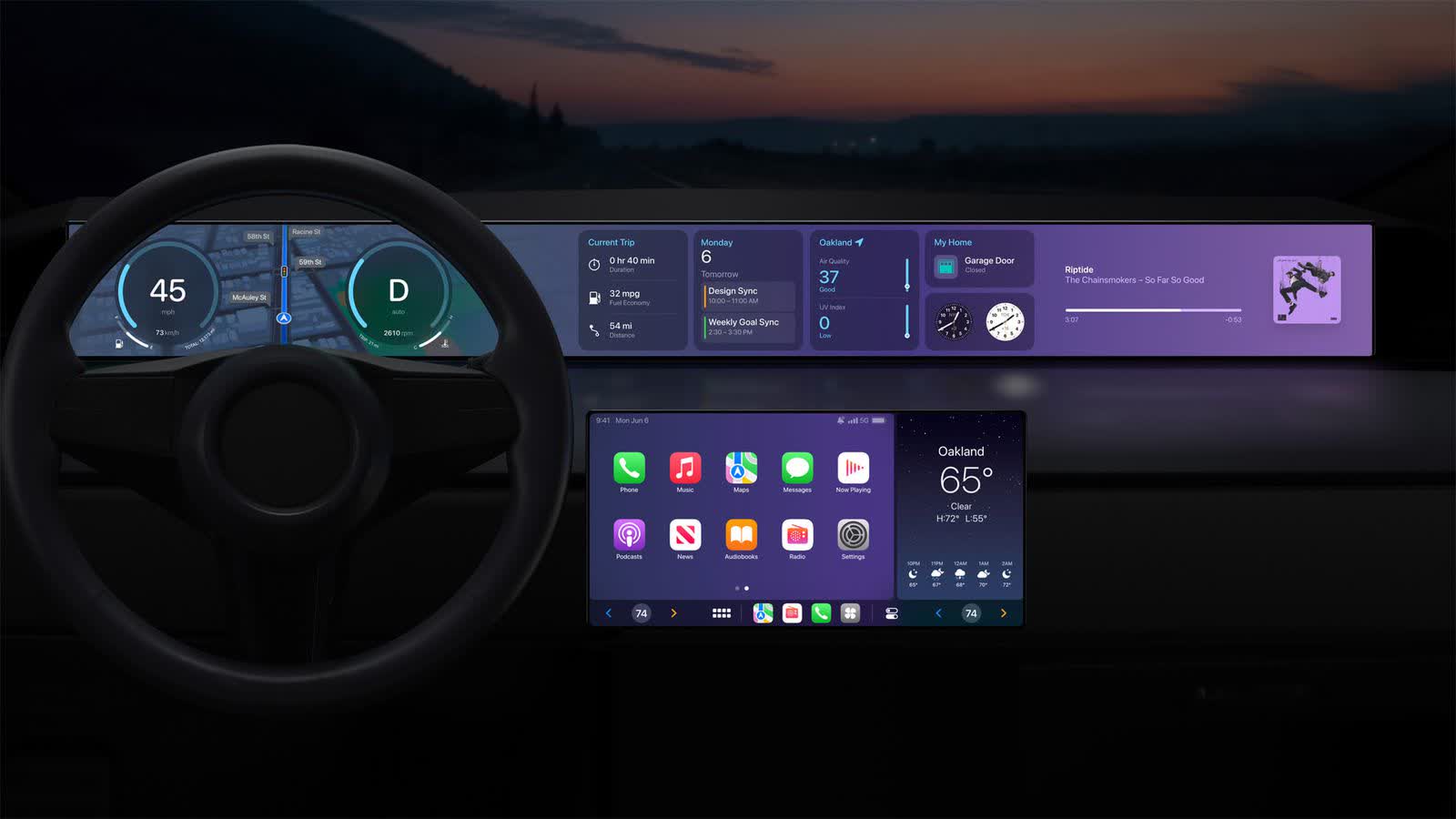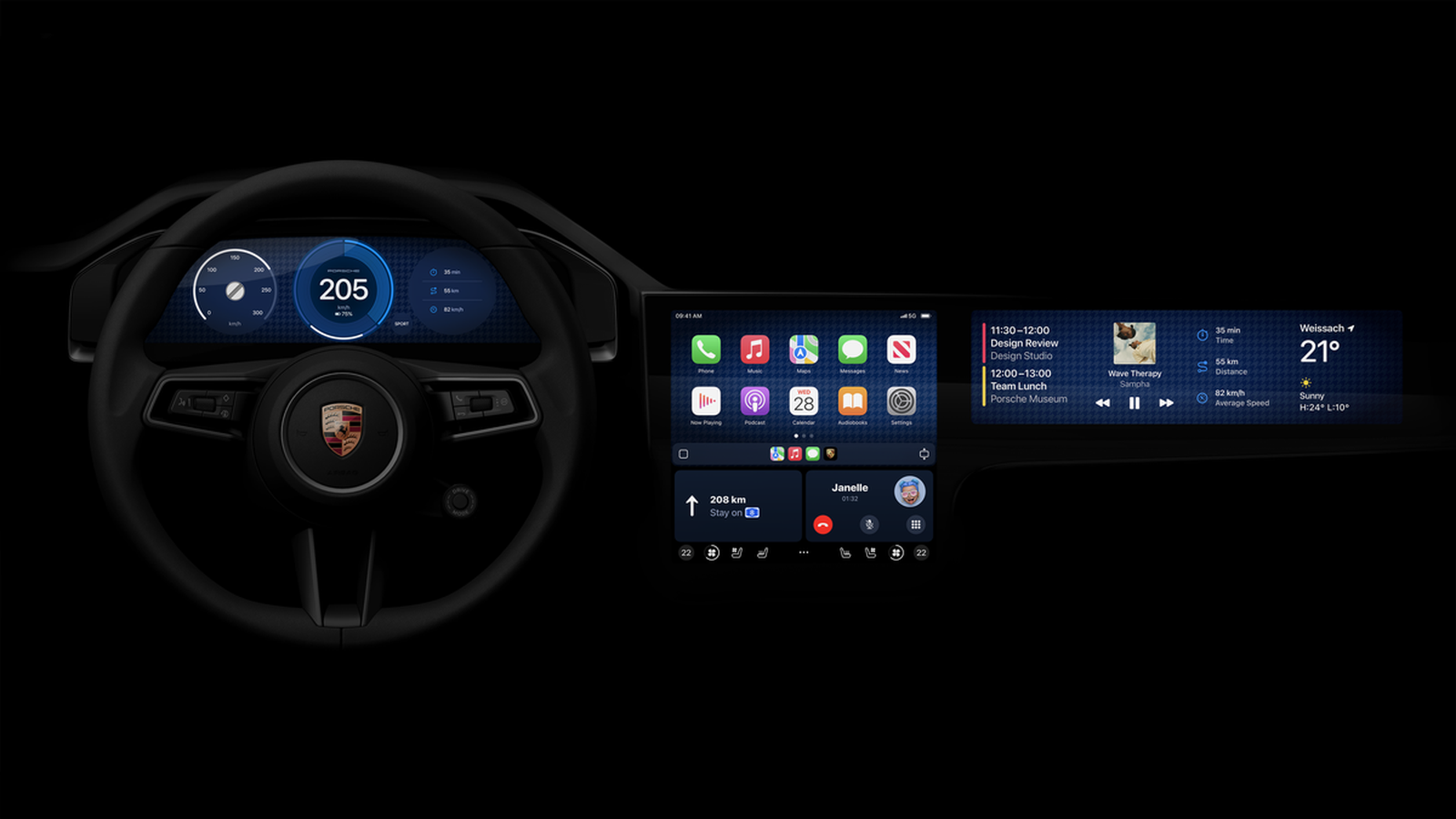Why it matters: It is unusual for Apple to cede control over the user experience to a partner, but the company is hoping to make further inroads into the auto market with its next generation CarPlay and has made the rare decision to license the OS to automakers to make that happen. Now the market waits to see if its gamble will pay off.
Apple CarPlay first launched in 2014 when it debuted on a Ferrari and then was more widely adopted by major car manufacturers in 2015. It was Apple's answer to the awful infotainment systems that automakers routinely churn out even on luxury models. Today, CarPlay is supported on a wide variety of vehicles and it's easy to implement: a Lightning cable plugs an iPhone into the car's USB port and then the user selects the CarPlay function on the car's screen. And that's if your car doesn't support wireless CarPlay, which is even easier to use.
Now Apple is upping its game with the next generation of CarPlay, which integrates both the central infotainment apps from the iPhone and data from the car's system into one screen that is populated with custom gauge clusters branded by the automaker. Perhaps a nod to its Ferrari origins, the first cars to sport the next generation CarPlay are Porsche and Aston Martin.
But while much ado was made over these announcements last December, a little but momentous detail slipped by most observers until journalist Sanjiv Sathiah spotted it: the next-generation CarPlay marks a return to software licensing for Apple. The turnaround, when you think about it, is quite breathtaking given Apple's ironclad insistence on creating a quality user experience by controlling both hardware and software. "In licensing its next-generation CarPlay to car makers, it is giving over the control of the "hardware" to car makers," Sathiah writes.
Because it is giving up some control, it's not surprising that luxury automakers are the first to host the next generation CarPlay as Apple may be hoping that they will not reproduce the inferior systems of earlier models. That decision may also indicate that Apple is not interested in having, for example, Hyundai feature its next generation product at all and instead is gunning for the luxury market with its fatter margins.
So much will be riding on how well Porsche and Aston Martin execute on their deployments.
Reviews so far have primarily focused on the aesthetics, such as how the carmakers have branded the interfaces. Porsche's CarPlay interface, for example, features three circular gauges in the cluster and a background wallpaper that hawkens back to Porsche's distinct houndstooth seat pattern. Aston Martin's interface has "Handbuilt in Great Britain" in wraparound text.
Aston Martin's first vehicles with the new CarPlay will be released this year, including a new model of its DB12 sports car. Porsche has not offered a timeframe or details about its plans.
Then there is General Motors, which is phasing out Apple CarPlay starting with its 2024 EVs to the chagrin of many of its dealers. The automaker says it is because the software is too distracting for drivers. Instead, it is offering a new integrated infotainment system using Google's built-in applications for cars. Initial reviews for its 2024 Chevy Blazer EV, which features its new infotainment software, have emerged recently and they make it clear the system is not ready for prime time.
